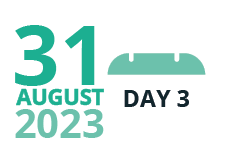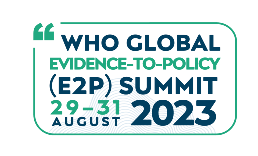Foresight is a systematic participatory process, aimed at informing present-day decisions and mobilizing joint actions, key features to support policymaking. Many tools and methods have been developed for the application of foresight for policymaking, ensuring that policymaking is trustworthy and future fit.
Artificial Intelligence (AI) has the transformative power to process data, provide predictive insights, streamline decision-making, and personalize interventions, revolutionizing evidence-informed policymaking. AI methods, including machine learning, deep learning, neural network, or any other applications are used to enable the full or semi-autonomous performance of one or more stages in the development of evidence synthesis to inform policy making. Automated tools and platforms such as RobotReviewer, Abstrackr, SWIFT-active screener, Covidence, Systematic Review Accelerator are applied in the synthesis of evidence, and for the facilitation and uptake of this evidence by different actors across health systems.
The session will provide a platform for speakers to engage in a lively debate on the potential of Artificial Intelligence (AI) and Foresight in the field of Evidence-Informed Policymaking (EIPM). The session aims to inspire participants to engage with foresight and AI tools and technologies, actively and ethically, thereby fostering a better understanding of the various ways in which AI can unlock new possibilities and advancements in EIP. By sharing insights, experiences, and ideas, participants will contribute to shaping the future of evidence-informed policymaking with the integration of AI and foresight.
Key questions and session highlights
- What is the additional value of foresight for evidence-informed policy making, both for short-term political cycles and long-term societal goals?
- What is the potential that AI can unlock in the EIPM field?
- What are the current AI tools being applied to EIPM?
- What are the current experiences addressing ethical concerns about the use of AI?








